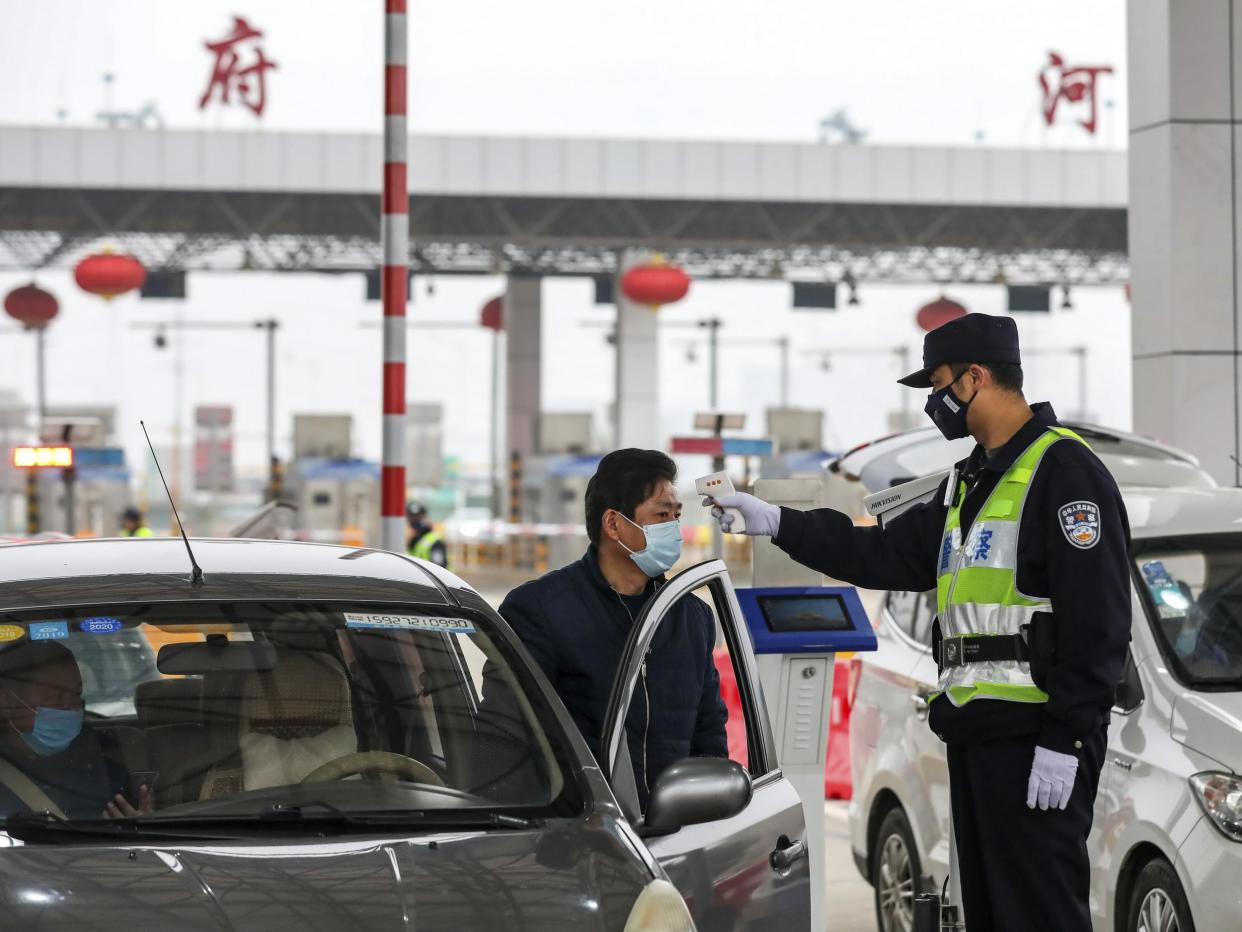Coronavirus latest: China extends lockdown to 10 cities ahead of Lunar New Year holiday

China has locked down nine more cities in an attempt to stop the spread of the coronavirus which has now claimed the lives of at least 41 people.
The city of Wuhan, where the virus started, had been effectively quarantined for days, with all train and bus stations closed and all flights cancelled.
Now, the authorities have done the same with nine other cities in the same Hubei province as Wuhan, as well as pre-emptively shutting down major public events and spaces across the country including the Forbidden City in Beijing and Shanghai’s Disney Resort.
Some 1,287 people have been confirmed to have caught the coronavirus, the country’s National Health Commission said.
The travel shutdown comes just as China gears up to celebrate the Lunar New Year, one of the biggest festivals in the calendar which would traditionally see tens of millions of Chinese travel to see family in other parts of the country.
Inside Wuhan, the epicentre of the outbreak, people have been ordered to wear face masks in public and shop shelves lie empty as residents stock up on essentials in preparation for what could a lengthy period cut off from the outside world.
Local authorities in the city have also announced they are rapidly building a dedicated 1,000-bed hospital to treat patients who have contracted the virus.
There have been unconfirmed reports local hospitals have had to turn some people away because so many had arrived, concerned they may have contracted the virus.
Using prefabricated components, city officials want to complete the new structure by early February. Wuhan hopes to emulate Beijing, which also quickly built a dedicated hospital in 2003 when battling the Sars outbreak.
The previously unknown strain of coronavirus is believed to have started at a fish market in Wuhan. The symptoms are similar to those of the common cold at first, but then can progress to a fever, shortness of breath and ultimately pneumonia.
Most of those who catch the virus recover, and those who die have tended to have underlying health complaints which the infection has worsened.
Although most cases remain clustered around Wuhan and the surrounding region, the virus has been found overseas too.
Fourteen people in the UK have been tested over fears they may have the virus; so far five have come back negative and the other nine are still waiting for results. All of them had recently travelled to Wuhan.
Despite the spread of the coronavirus, the World Health Organisation has not yet declared a global public health emergency, mostly because of the relatively few number of confirmed cases overseas.


